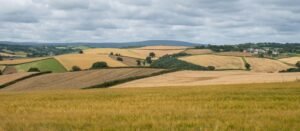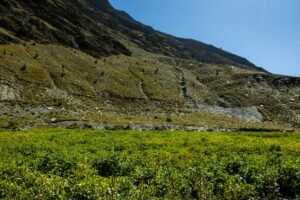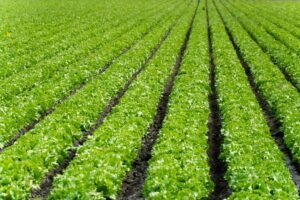California’s dairy industry is one of the largest in the nation, producing billions of pounds of milk each year and supporting thousands of workers and families. However, dairy farming is an operation filled with daily challenges and unpredictable risks. From animal health issues to equipment breakdowns and environmental regulations, dairy farmers face a wide range of potential threats that can disrupt business operations and lead to substantial financial losses. Understanding these risks—and securing the right insurance coverage—is crucial for ensuring the long-term stability and success of any dairy farm.
The Unique Risks of Dairy Farming in California
Running a dairy farm requires constant attention to both animal welfare and production processes. However, even with the best management practices, risks are inevitable. One of the most significant challenges dairy farmers face is the potential for livestock illness or injury. Diseases like mastitis or foot-and-mouth disease can rapidly affect herd health, reducing milk output and profitability. In addition, unpredictable weather patterns, such as droughts or heatwaves, can impact feed availability and milk production levels.
California’s environmental conditions also create additional concerns for dairy farmers. Water regulations, waste management requirements, and air quality laws add complexity to farm operations. Non-compliance or accidents involving waste runoff can lead to legal penalties and reputational damage. Moreover, natural disasters like wildfires and floods have become more frequent, threatening livestock safety, farm buildings, and essential equipment.
Essential Insurance Coverage for Dairy Farms
Given the diverse risks dairy farmers face, having a comprehensive insurance plan is essential. One of the primary coverages for dairy operations is livestock insurance, which protects against the death or injury of cattle due to accidents, disease, or natural disasters. This coverage can include individual animal protection or blanket coverage for the entire herd, ensuring you’re financially protected from sudden losses.
Property insurance is equally vital for dairy farms, as it covers barns, milking parlors, feed storage areas, and equipment used for milking, feeding, and cleaning. Damage from fires, storms, or equipment malfunction can halt production, but with the right insurance in place, repairs and replacements can be managed swiftly without disrupting operations.
Equipment breakdown coverage ensures that essential machinery such as cooling tanks, milking systems, and processing machines are repaired or replaced if they fail. Given the continuous operation required in dairy farming, even a short period of downtime can lead to major losses.
Liability insurance is another critical component, protecting you from financial responsibility if someone is injured on your property or if your farm’s activities cause damage to neighboring land. This coverage also helps in cases of product liability, such as contamination claims involving milk or dairy products.
Workers’ compensation insurance is required by California law for farms with employees. Dairy farms rely heavily on labor, and the physically demanding nature of the work means injuries can happen. Workers’ compensation helps cover medical costs and lost wages for injured employees, ensuring both legal compliance and employee well-being.
Environmental and Pollution Liability Coverage
Dairy farms generate large amounts of organic waste and wastewater, which must be carefully managed to prevent environmental contamination. Accidental spills or runoff into nearby water sources can lead to costly cleanup operations and legal action. Pollution liability insurance protects against these risks by covering the expenses related to environmental damage, cleanup, and third-party claims.
This coverage is particularly important in California, where environmental regulations are among the strictest in the country. By securing adequate protection, dairy farmers can avoid major financial setbacks and maintain compliance with state and federal laws.
Managing Financial Risks with Business Interruption Insurance
In the event of a disaster—whether it’s a barn fire, machinery breakdown, or disease outbreak—farm operations may need to pause temporarily. Business interruption insurance helps replace lost income during these downtimes, covering ongoing expenses like payroll and utilities until normal operations resume. This financial safety net ensures your dairy remains stable even during unforeseen challenges.
Choosing the Right Insurance Policy for Your Dairy Farm
No two dairy farms are the same. The right insurance policy should reflect your farm’s size, herd type, equipment value, and production volume. Working with an insurance provider who understands agricultural risks in California is key to finding a customized policy that fits your needs. It’s also important to review your coverage regularly, especially as your farm grows or adds new equipment. Adjusting your insurance to reflect operational changes prevents coverage gaps that could expose you to significant risk.
Conclusion
Dairy farming in California is a rewarding yet demanding business that requires strategic protection. With the right insurance coverage, dairy farmers can safeguard their livestock, equipment, employees, and property from the unpredictable challenges that come with agricultural production. By understanding your risks and securing a tailored insurance plan, you ensure the sustainability and profitability of your dairy operation for years to come.
For more information on dairy farm insurance and customized coverage options, visit Western Insurance







